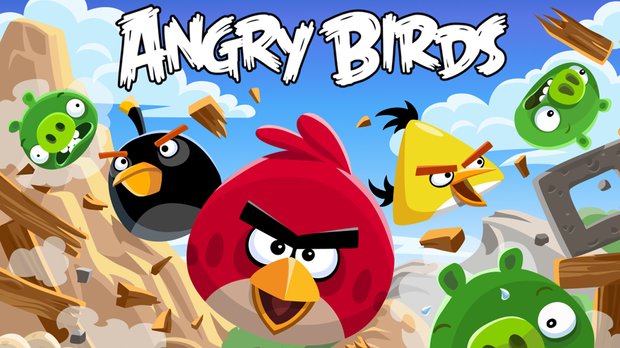New PC vs. mobile sales hint that the iOS gaming bubble has burst
Remember a few years ago, when mobile gaming was going to kill consoles and the PC dead? Yeah, that was an exciting time. According anyone you asked (who was developing mobile games or worked for Apple), the iPhone was mere months away from a bloody, Conan-style rampage, lopping heads and felling the bodies of the old guard in order to usher in a bright, grossly incandescent future of innovative, accessible, thrilling new ways to poke screens and slide identikit cartoon animals around. Crappy old gaming was on its last legs, and boy was everyone (who was developing mobile games or worked for Apple) excited about it.

Didn’t really work out that way, did it? In much the same way that PC gaming was proclaimed an irrelevant old dinosaur, futilely lurching its last, not long before its vast, conveniently ignored advantages as a medium launched an immense renaissance--which in turn reinvigorated those consoles that the first mobile infantry also claimed were on their way out--predictions haven’t turned into actual reality.
Instead, we have the most healthily eclectic landscape of games we’ve seen in years, thriving on every format. And rather than fight amongst themselves while mobile gaming romped to a lead, the PC and console gaming markets have steadily converged, improving exposure for devs and content for gamers immensely as new-gen ramps up. Those mobile games though? There are undoubtedly massive breakout hits, which utterly consume casual gaming culture and watercooler chats the world over for a month at a time. But tablet and phone gaming has hardly become the benevolent motherland of innovation and riches many expected.
That’s a fact compounded by some very interesting new information revealed by staunch PC developer Stardock, during its Annual Customer Report yesterday. Explaining its decision not to branch out into the growing mobile market, the company stated that “Our poorest-selling DLC for PC games generates more income than nearly every iOS or Android developer app we’ve gotten numbers for.”

Ouch. Now of course that wording is a tad vague. No distinction is drawn between unit numbers sold and profit gathered, and naturally PC DLC is likely to be priced a fair bit higher than the average mobile game. But the ultimate fact remains that as a general business proposition it makes sense to be making more money than less.
Another interesting point raised in the same report: 5 years ago, 24% of Stardock’s customers expected to still be buying their games on physical media today. In reality, those currently still shying away from digital downloads total only 6%. Those stats fly in the face of the whopping--and slightly worrying--72% of UK console gamers who still won’t touch digital, which I reported last month. All of the above seems to come to one large, resounding conclusion. The PC is absolutely the place for devs interested in digitally distributed projects to start.
That’s certainly a sentiment echoed by Mike Bithell, the indie developer responsible for the excellent Thomas Was Alone, and upcoming neo-Robin Hood stealth game Volume. A consistent advocate for the notion that new developers should make their name on PC and console, he has however of late expressed concern regarding the way that Steam’s transition from kudos-enabled, curated platform to open, Greenlight-happy free-for all might be damaging things. Less professional endorsement and a more freeform, “anything goes” marketplace means reduced exposure for high quality games and increased confusion for customers trying to find the good stuff.
Sign up to the GamesRadar+ Newsletter
Weekly digests, tales from the communities you love, and more

All of which leads me neatly back to the problems that have hamstrung mobile gaming’s great ambitions, particularly on iOS. Too much software, not enough curation, and completely inadequate spotlighting have lead to a mammoth swathe of floundering also-rans, buried under the weight of the latest physics-based thing with birds. And that’s before we even get into how poisoned the well has become by way of unregulated clones and rampant abuse of in-app purchases. Apple is finally taking some steps to improve discoverability with the redesigned iOS 8 App Store, but it’s going to take more than a better search engine to mop up that swamp.
Shame, because with less hubris and more care, iOS gaming could have been exactly the thriving, creative, democratic area it wanted to be by now. It wouldn’t have removed the PC and consoles from the game of course, but it could have been a great parallel marketplace, doing fantastic things on its own terms. Sometimes a little realism and thoughtfulness goes a long way. Bombast will get you the attention, but once you’ve got an audience, you need to perform.



